The Temple of British Worthies in Stowe Gardens
One of the most popular monuments in Stowe Gardens is the Temple of British Worthies which was built around 1735. It is also a touch controversial, as many visitors’ conversations mention the fact that “there’s only one woman”. They're right, of course. Every one of the sixteen stone busts displayed is of a "male worthy" - expect for Queen Elizabeth I!
Plus, there is quite a lot of discussion about who’s included in the list of the British Worthies and whether they are worthy enough. It's a fun debate to have while wandering Stowe Gardens, and I’m sure we could all come up with a list of sixteen different names!
You get one of the best views of the Temple of British Worthies from the Elysian Fields just below the Temple of Ancient Virtue. On a calm, sunny day, you’ll seen the complete temple reflected in the water. It makes a wonderful photograph!
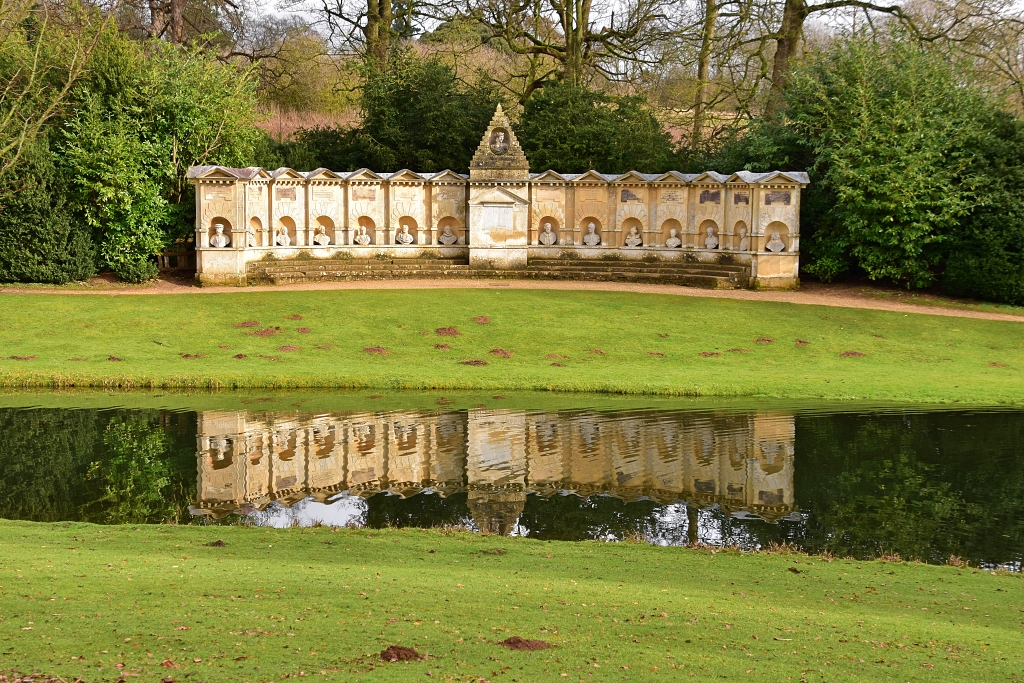 The Temple of British Worthies in Stowe Gardens © essentially-england.com
The Temple of British Worthies in Stowe Gardens © essentially-england.com
Who's Included in Stowe Gardens' Temple of British Worthies?
We’ve taken photographs of each worthy and, as some of the inscriptions are difficult to read due to weathering, have transcribed each inscription into modern English. Some make quite interesting reading. Our worthies are in the order of left to right as seen in the photo above.
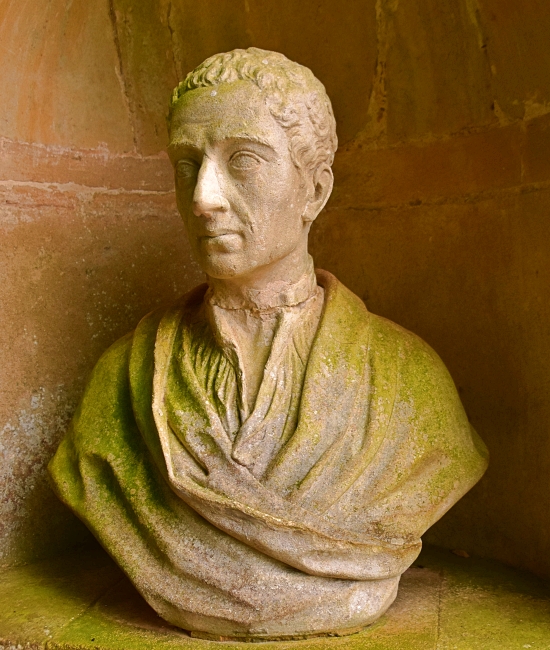 Alexander Pope © essentially-england.com
Alexander Pope © essentially-england.comAlexander Pope
Who uniting the correctness of judgement to the fire of genius, by the melody & power of his numbers gave sweetness to sense, & grace to philosophy. He employed the pointed brilliancy of wit to chastise the vices, and the eloquence of poetry to exalt the virtues of human nature; and being without a rival in his own age, imitated and translated, with a spirit equal to the originals, the best poets of antiquity.
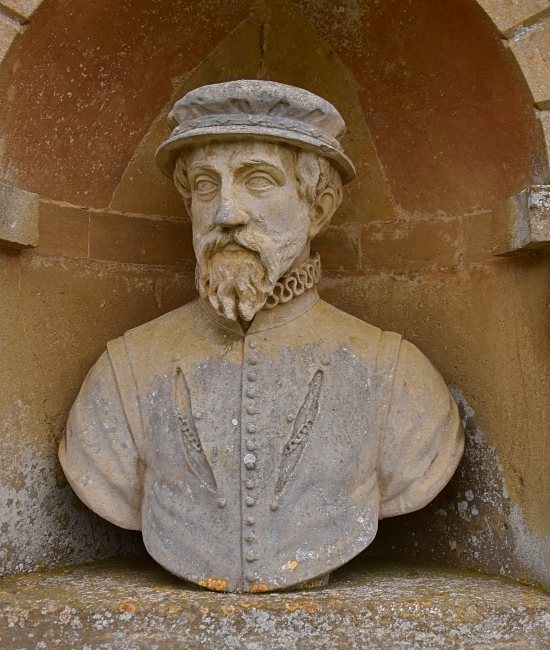 Sir Thomas Gresham © essentially-england.com
Sir Thomas Gresham © essentially-england.comSir Thomas Gresham
Who by the honourable profession of merchant, having enriched himself, and his country, for carrying on the commerce of the world, built the Royal Exchange.
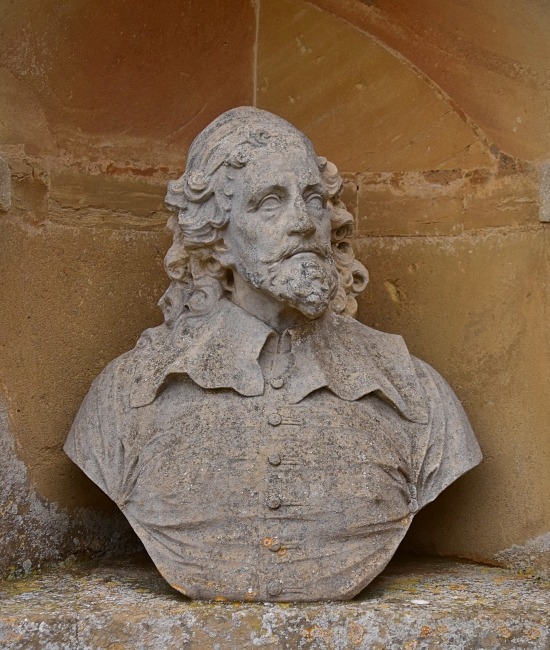 Inigo Jones © essentially-england.com
Inigo Jones © essentially-england.comInigo Jones
Who, to adorn his country, introduced and rivalled the Greek and Roman architecture.
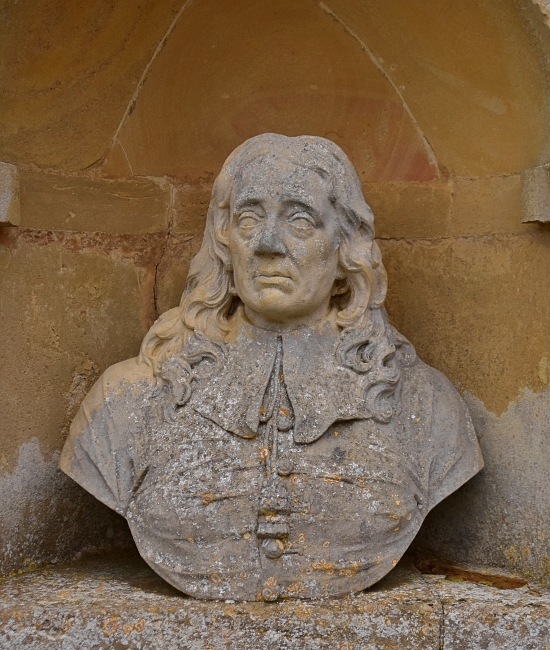 John Milton © essentially-england.com
John Milton © essentially-england.comJohn Milton
Whose sublime and unbounded genius equalled a subject that carried him beyond the limits of the world.
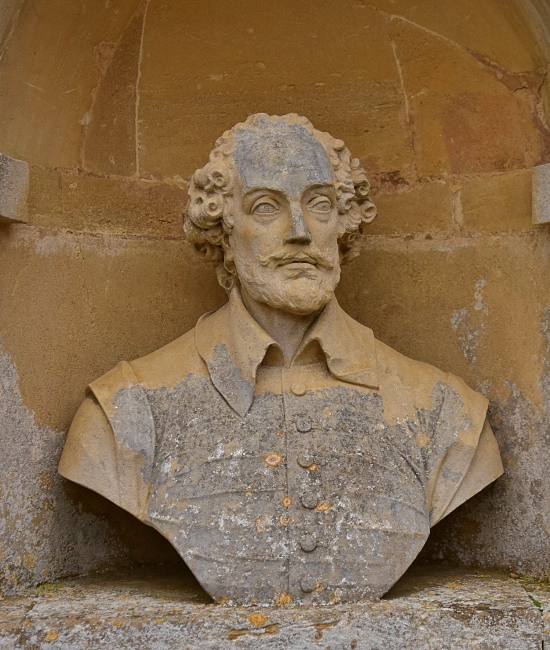 William Shakespeare © essentially-england.com
William Shakespeare © essentially-england.comWilliam Shakespeare
Whose excellent genius opened to him the whole heart of man, all the mines of fancy, all the stores of nature; and gave him power, beyond all other writers, to move, astonish, and delight mankind.
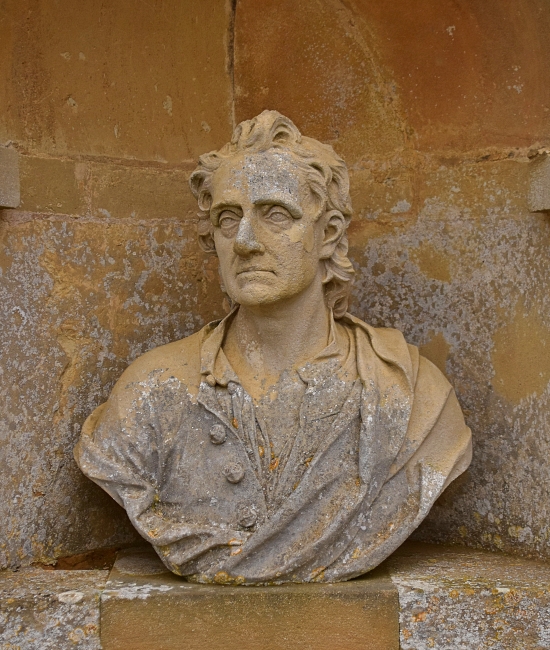 John Locke © essentially-england.com
John Locke © essentially-england.comJohn Locke
Who, best of all philosophers, understood the powers of the human mind: the nature, end, and bounds of civil government; and with equal courage and sagacity, refused the slavish systems of usurped authority over the rights, the consciences, or the reason of mankind.
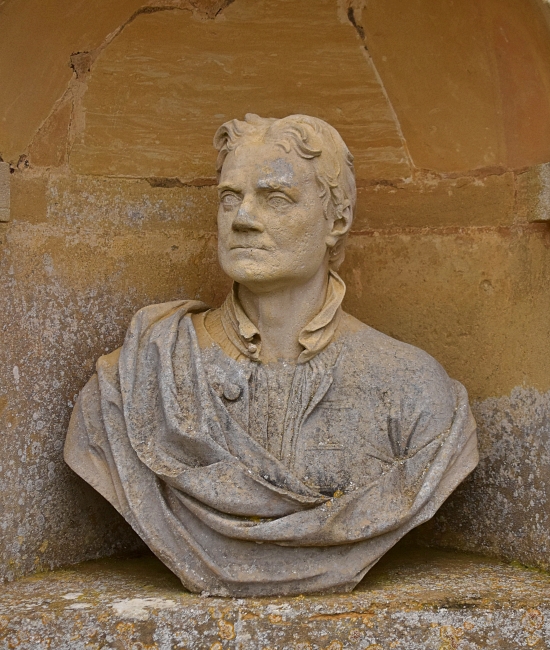 Sir Isaac Newton in the Temple of British Worthies
Sir Isaac Newton in the Temple of British WorthiesSir Isaac Newton
Whom, the God of nature made to comprehend his works.
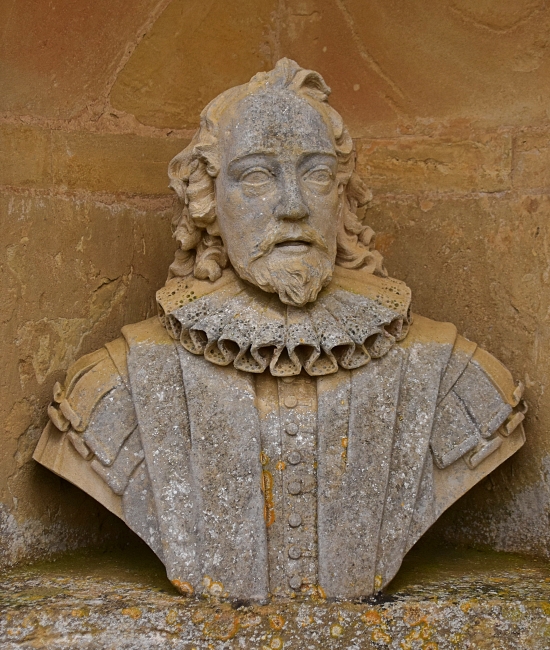 Sir Francis Bacon Lord Verilum © essentially-england.com
Sir Francis Bacon Lord Verilum © essentially-england.comSir Francis Bacon Lord Verilum
Who by the strength and light of a superior genius, rejecting vain speculation, and fallacious theory, taught to pursue truth and improve philosophy by a certain method of experiment.
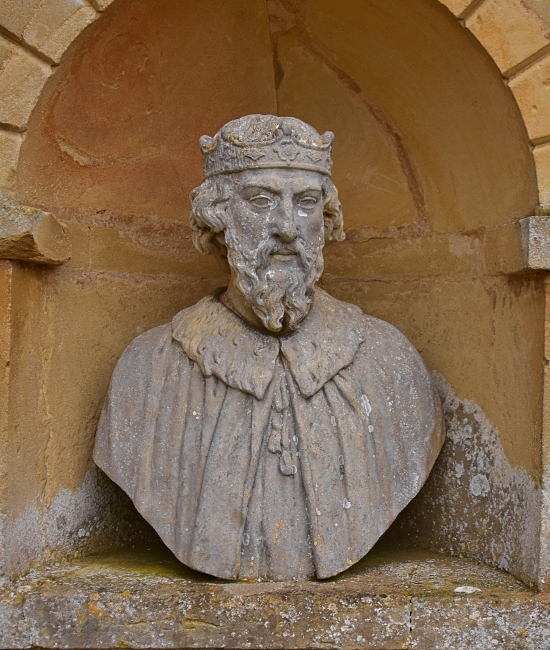 King Alfred © essentially-england.com
King Alfred © essentially-england.comKing Alfred
The mildest, justest, most beneficent of Kings; who drove out the Danes, secured the seas, protected learning, established juries, crushed corruption, guarded liberty, and was the founder of the English constitution.
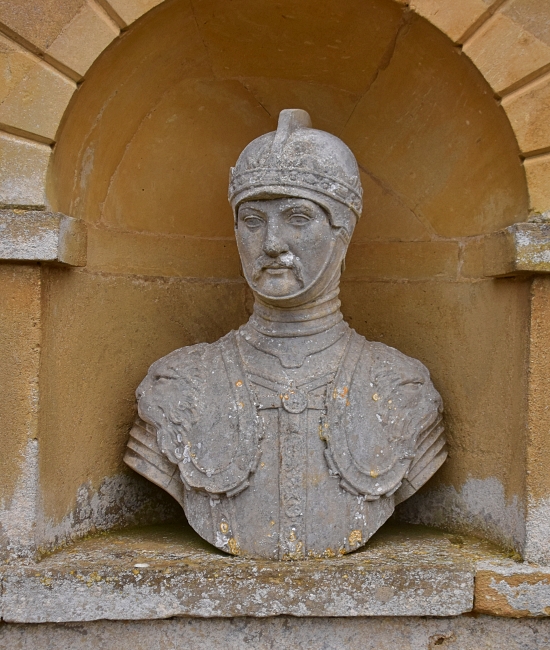 Edward Prince of Wales © essentially-england.com
Edward Prince of Wales © essentially-england.comEdward Prince of Wales
The Terror of Europe, the delight of England who preserved, unaltered, in the height of glory and fortune, his natural gentleness and modesty.
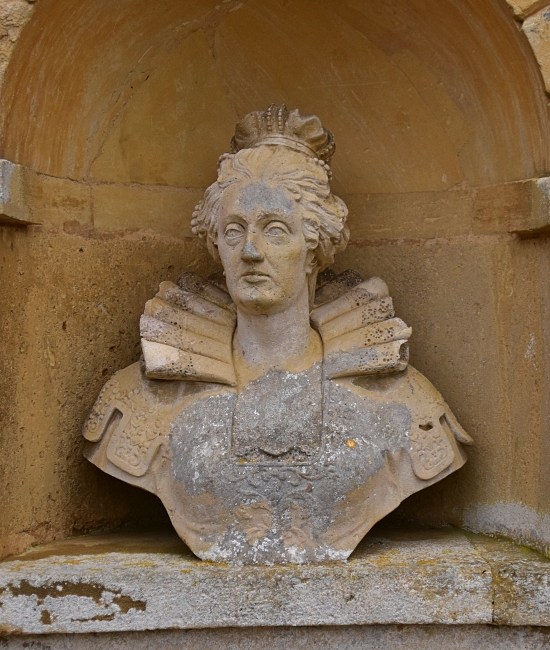 Queen Elizabeth I © essentially-england.com
Queen Elizabeth I © essentially-england.comQueen Elizabeth I
Who confounded the projects, and destroyed the power that threatened to oppress the liberties of Europe; took off the yoke of ecclesiastical tyranny, restored religion from the corruptions of Popery. and by a wise, moderate, and a popular government, gave wealth, security, and respect to England.
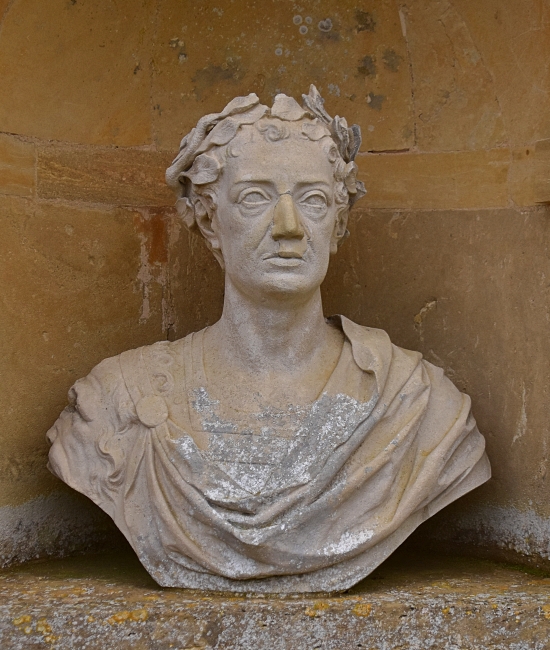 King William III © essentially-england.com
King William III © essentially-england.comKing William III
Who by his virtue and constancy, having saved his country from a foreign master, by a bold and generous enterprise, preserved the liberty and religion of Great Britain.
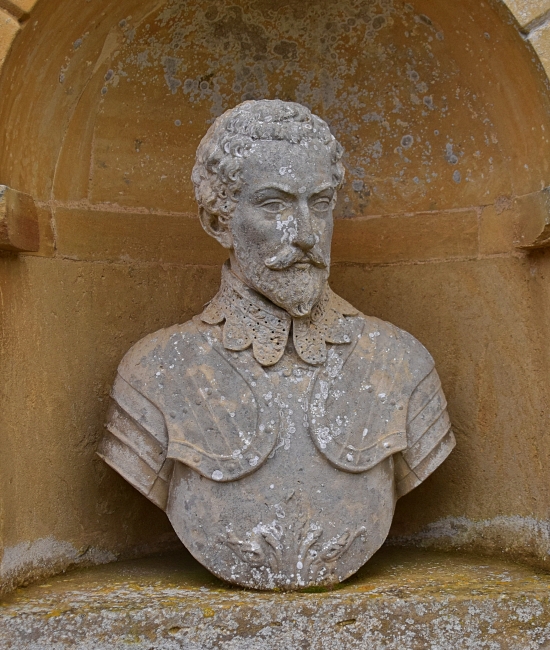 Sir Walter Raleigh © essentially-england.com
Sir Walter Raleigh © essentially-england.comSir Walter Raleigh
A valiant soldier, and an able statesman who endeavouring to rouse the spirit of his master, for the honour of his country, against the ambition of Spain, fell a sacrifice to the influence of that court, whose arms he had vanquished, and whose designs he opposed.
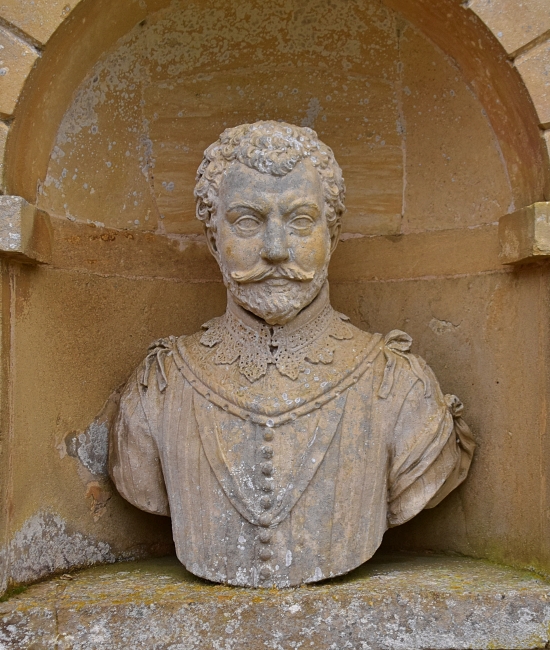 Sir Francis Drake © essentially-england.com
Sir Francis Drake © essentially-england.comSir Francis Drake
Who, through many perils, was the first of Britons that adventures to sail round the globe; and carried into unknown seas and nations; the knowledge and glory of the English name.
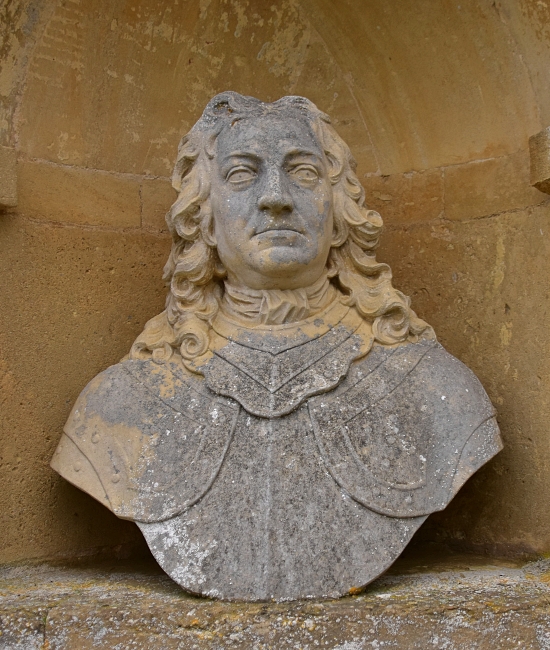 John Hampden © essentially-england.com
John Hampden © essentially-england.comJohn Hampden
Who with great spirit, and consummate abilities, begun a noble opposition to an arbitrary court, in defence of the liberties of his country; supported them in parliament, and died for them in the field.
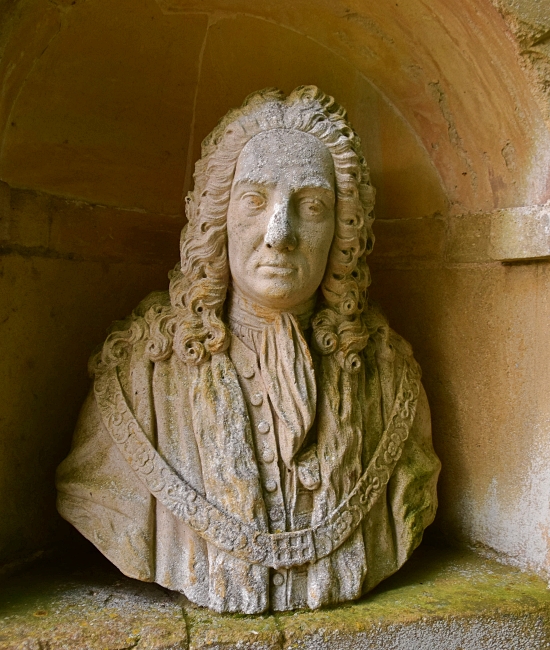 Sir John Barnard © essentially-england.com
Sir John Barnard © essentially-england.comSir John Barnard
Who distinguished himself in parliament by an active & firm opposition to the pernicious and iniquitous practice of stock jobbing; at the same time exerting his utmost abilities to increase the strength of his country by reducing the interest of the National Debt; which he proposed to the House of Commons in the year 1737, and, with the assistance of government, carried into effect in the Year 1750; on terms of equal justice to particulars & to the state; notwithstanding all the impediments which private interest could oppose to public spirit.
These, then, are the British Worthies as seen in 1735. Quite a few are as well known now as they were then. It's a pity later owners of Stowe didn't continue the procession by adding busts of the greatest minds of their age. It would make for a fantastic procession. It also begs the question: whose statues would we add in 2024?
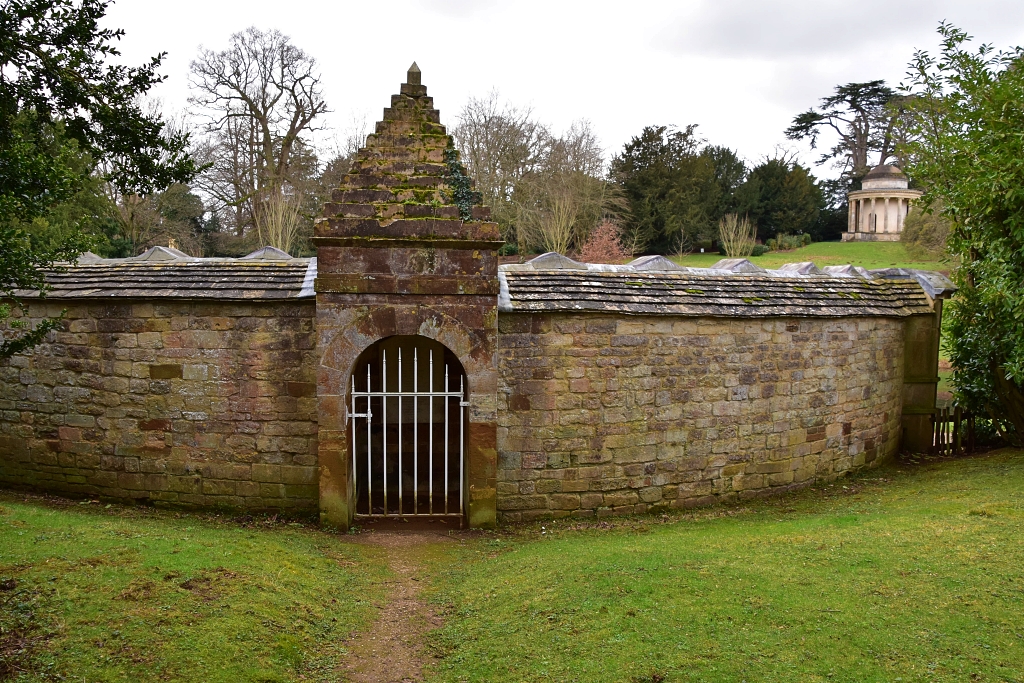 Back ot the Temple of British Worthies
Back ot the Temple of British Worthies © essentially-england.com
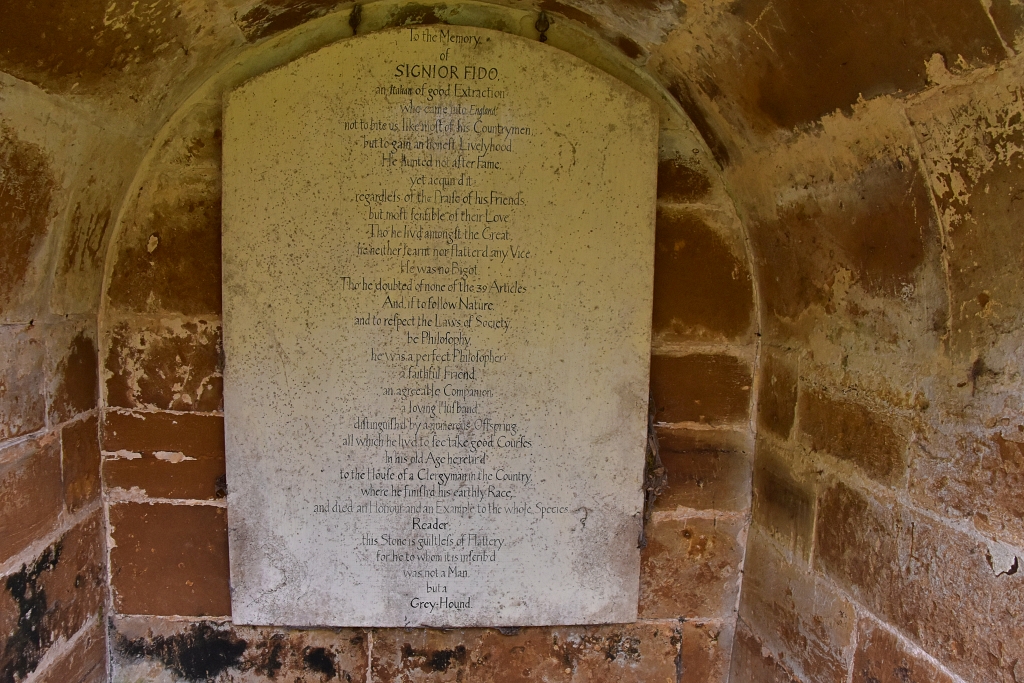 Grey Hound Memorial
Grey Hound Memorial © essentially-england.com
And don’t forget to go round to the back of Temple of British Worthies to read the longest inscription to Lord Cobham’s dog. There’s a path off Thanet Walk which allows you view the back of the temple and the largest memorial. What a shame there wasn’t a bust of the dog!
To the Memory
Of
SIGNOR FIDO
an Italian of good Extraction
who came into England
not to bite us like most of his Countrymen
but to gain an honest Livelyhood
He hunted not after Fame
yet aquired it
regardless of the Praise of his Friends
but most sensible of their Love
Tho he lived amongst the Great
he neither learnt not flattered any Vice
He was no Bigot
Tho he doubted of none of the 39 Articles
And, if to follow Nature,
and to respect the Laws of Society
be Philosophy,
he was perfect Philosopher
a faithful Friend
an agreeable Companion
a loving Husband
distinguished by a numerous Offspring
all which he lived to see take good Courses
In his old Age he retired
to the House of a Clegyman in the Country
where he finished his earthly Race,
and died an Honour and an Example to the whole Species
Reader
this Stone is guiltless of Flattery
for he to whom it is inscribed
was not a Man,
but a
Grey-Hound.
If you're turning your visit to Stowe Gardens and Parkland into a short break or long weekend and need to find local accommodation, then please check our Booking.com search box.
For more information on Stowe Gardens, opening times, and events please refer to the National Trust website here.
